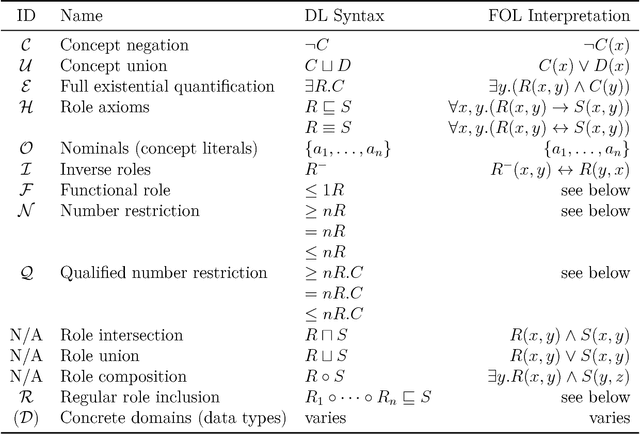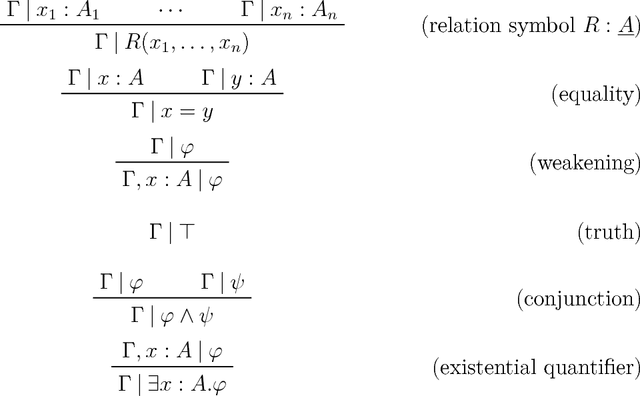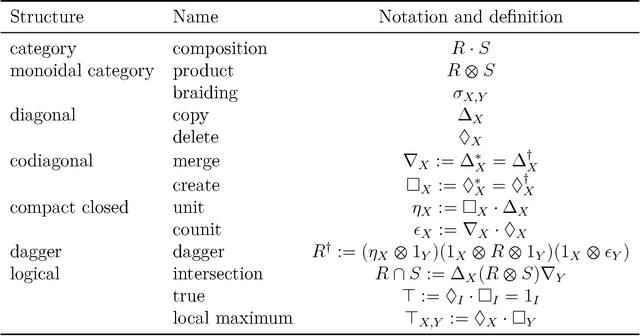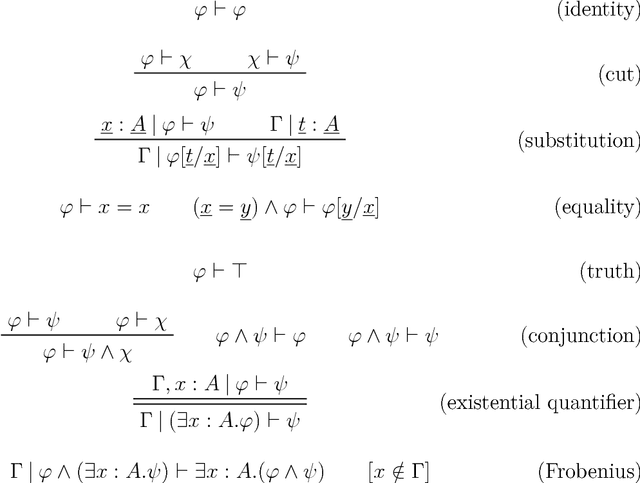Knowledge Representation in Bicategories of Relations
Paper and Code
Nov 01, 2017



We introduce the relational ontology log, or relational olog, a knowledge representation system based on the category of sets and relations. It is inspired by Spivak and Kent's olog, a recent categorical framework for knowledge representation. Relational ologs interpolate between ologs and description logic, the dominant formalism for knowledge representation today. In this paper, we investigate relational ologs both for their own sake and to gain insight into the relationship between the algebraic and logical approaches to knowledge representation. On a practical level, we show by example that relational ologs have a friendly and intuitive--yet fully precise--graphical syntax, derived from the string diagrams of monoidal categories. We explain several other useful features of relational ologs not possessed by most description logics, such as a type system and a rich, flexible notion of instance data. In a more theoretical vein, we draw on categorical logic to show how relational ologs can be translated to and from logical theories in a fragment of first-order logic. Although we make extensive use of categorical language, this paper is designed to be self-contained and has considerable expository content. The only prerequisites are knowledge of first-order logic and the rudiments of category theory.
 Add to Chrome
Add to Chrome Add to Firefox
Add to Firefox Add to Edge
Add to Edge